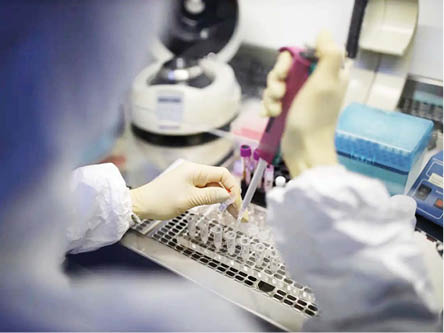- COVID-19: Nigeria records 684 deaths as cases crossed 30,000
- COVID-19: FG reverses decision on school resumption
He added that the development and validation of RNASwift was also a reflection of the creativity that has gone on in Nigerian laboratories, working in collaboration with some scientists in the United Kingdom.
He revealed that the kit would enable the country test 5million farmers and farm labourers to ensure food security chain was not compromised by COVID-19.
Characteristics of RNASwift diagnostic kit
The NABDA boss said: “It is important to mention that the RNASwift diagnostic kit is very accurate and sensitive.
“The validation results compare very favourably with conventional and commercially available kits for the diagnosis of COVID-19.
“This is in addition to a careful choice of reagents that are human and environmentally friendly in the development of the protocol for the diagnostic kit.
“In fact, the attributes of the RNASwift kits make it a game changer in the design and production of diagnostic kits for infectious diseases in the face of an epidemic or a pandemic.”
He said the limited availability in the country of affordable COVID-19 test kits necessitated the invention of RNASwift.
According to him, the kit will reshape Nigeria’s testing approach and bring the power of large scale and precise testing closer to more Nigerians.
“This is a giant leap in the quest to ensure that every Nigerian and indeed every African gets the best attention needed to survive the COVID-19 pandemic,” he said.
He said two Nigerian companies, Graeme Blaque Advisory and Cellulant Nigeria Limited provided the financial support for the validation of the kit development protocol as developed by Nigerian scientists.
10 million RNASwift diagnostic kit
The Ministers of Science and Technology and Agriculture and Rural Development, Ogbonnaya Onu and Sabo Nanono respectively, jointly launched the kit on behalf of the Federal Government of Nigeria.
Onu, while speaking before unveiling the kit said it would be affordable to all poor Nigerians.
The minister said about 10million kits had been produced and more would be produced in the near future.
On his part, Nanono said that new kits was capable of increasing productivity in the agricultural sector.

 Join Daily Trust WhatsApp Community For Quick Access To News and Happenings Around You.
Join Daily Trust WhatsApp Community For Quick Access To News and Happenings Around You.


